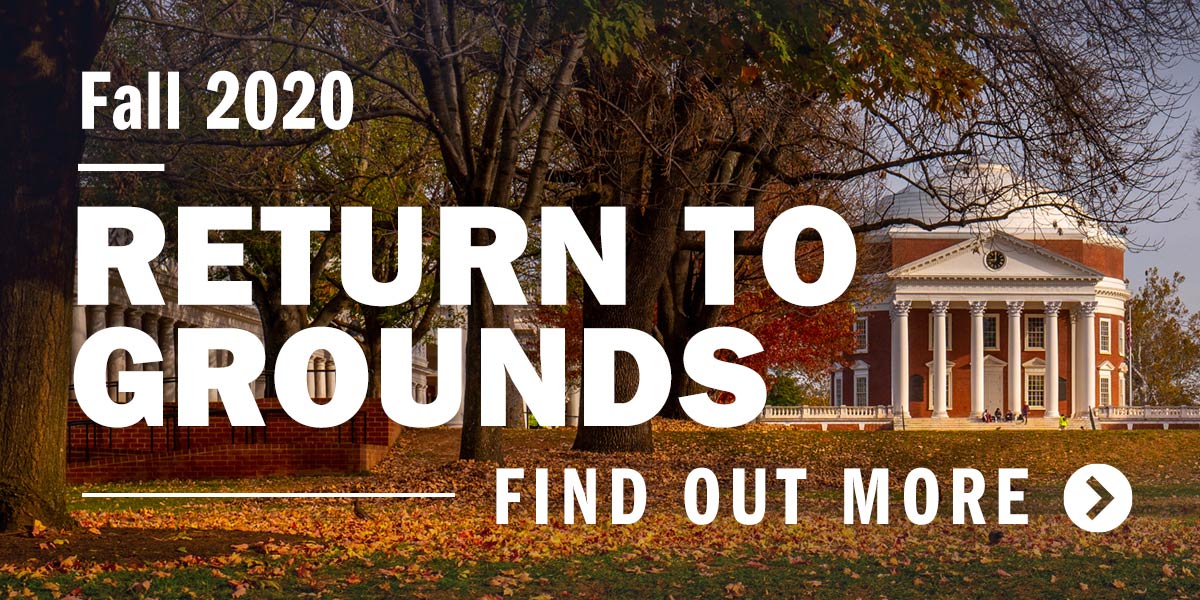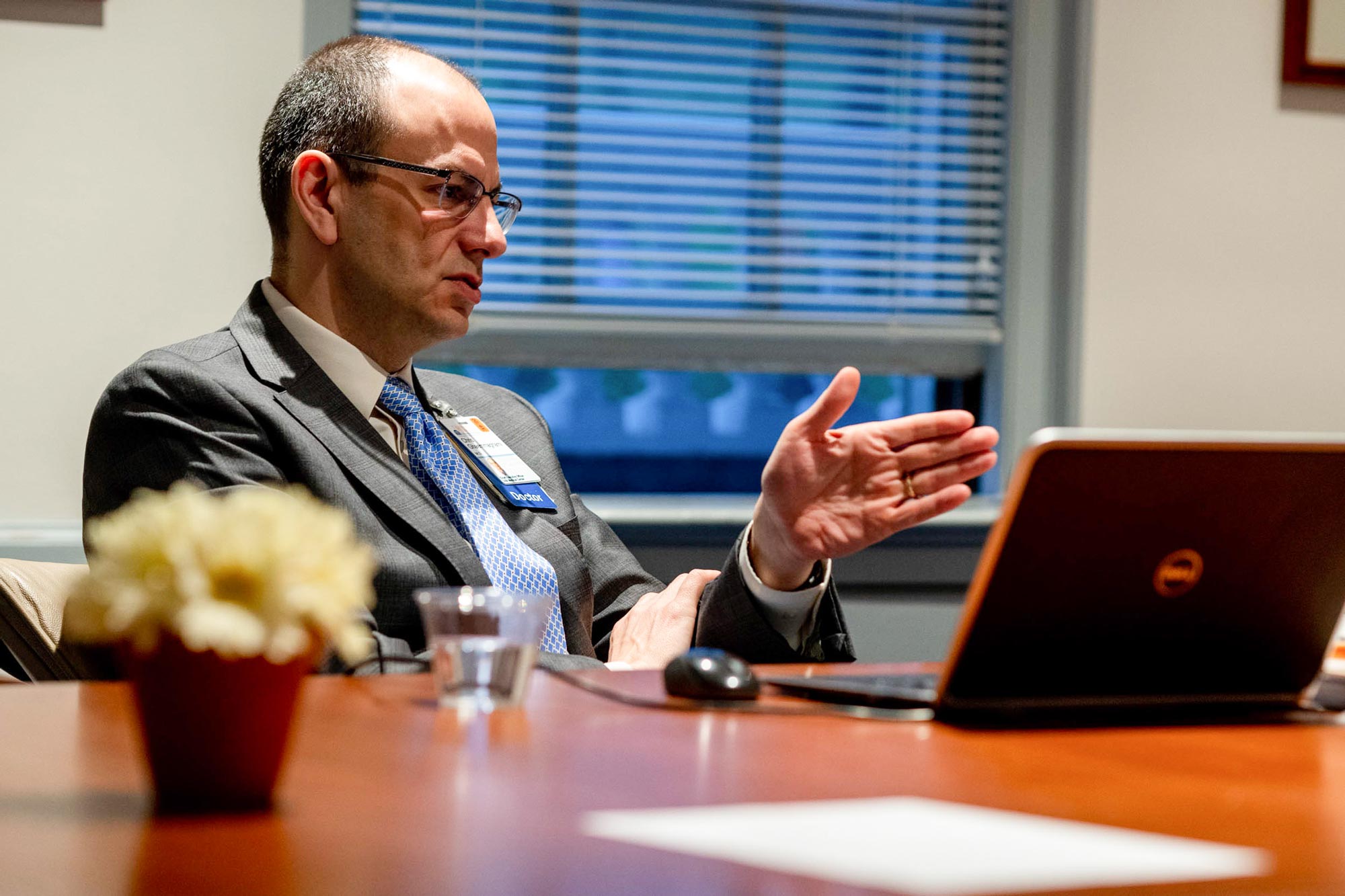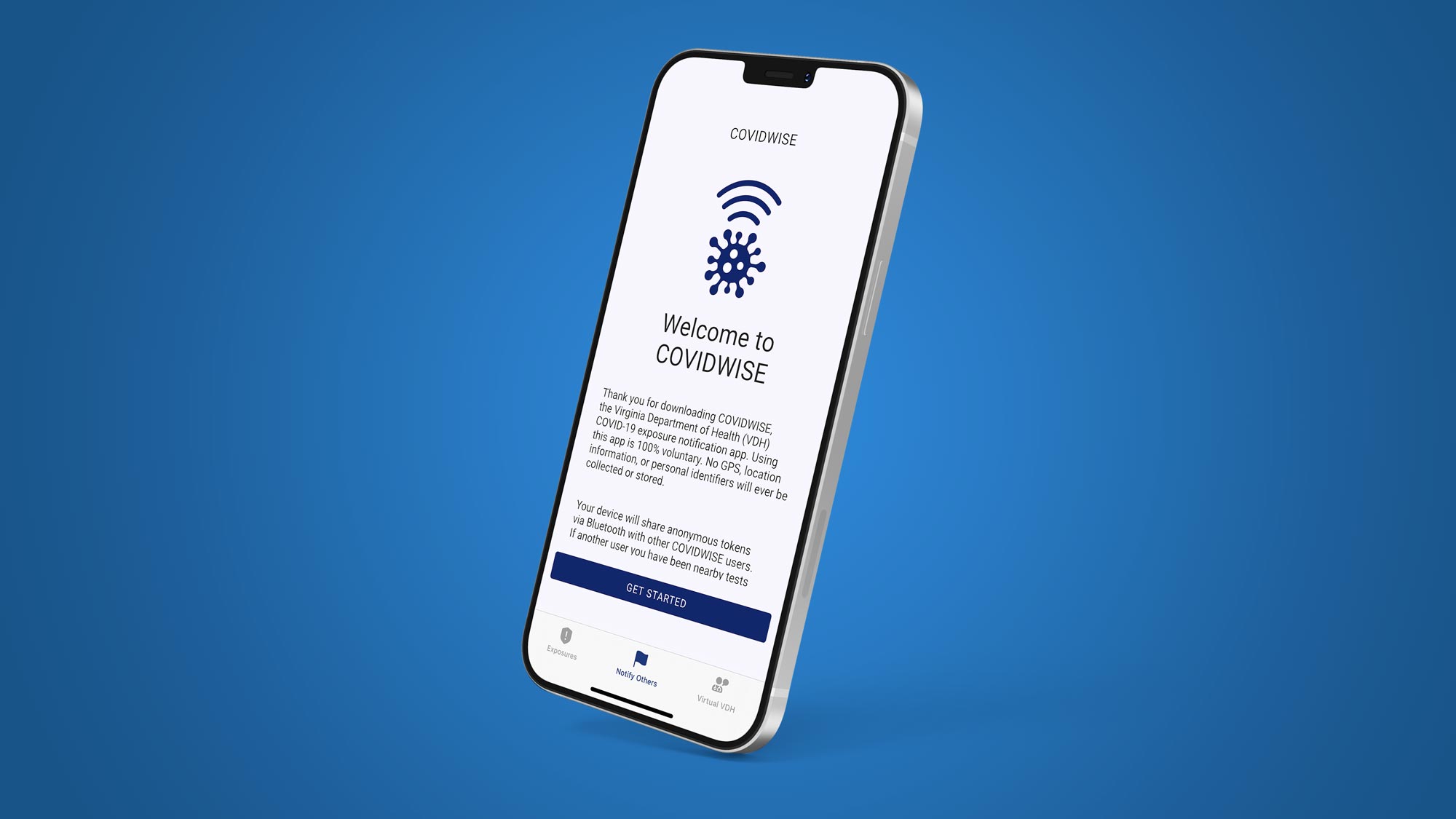Imagine hanging out in your dormitory room, or sitting outside a grocery store or day care center, and receiving a push notification on your smartphone telling you that somebody you’ve been in contact with for at least 15 minutes within a distance of 6 feet has tested positive for COVID-19.
It’s potentially life-saving information for yourself, for a loved one or for somebody you’ve never met.
There is no longer a need to visualize how this type of digital technology might be able to help in the fight against COVID-19. That piece of tech is here in the form of COVIDWISE, the United States’ first exposure-notification app, which launched in Virginia earlier this month.
COVIDWISE can be used anywhere you are traveling in the country, and downloaded for free in just a few seconds here.
Using technology from Google and Apple, the app can save lives, prevent larger outbreaks and help keep the University of Virginia open throughout the fall, according to Dr. Chris Ghaemmaghami, a professor of emergency medicine at UVA who worked with the Virginia Department of Health to launch the app.

“We are very early in the adoption phase,” Ghaemmaghami said. “We have had more than 370,000 downloads so far and are hoping to eventually have millions. Once we have a critical mass of users, we expect there will be a good number of notifications each day that will allow us to find people who may be infected even before they have symptoms so we can further reduce the spread.”
UVA Today caught up with Ghaemmaghami – now leading the containment and contact tracing program for the Virginia Department of Health – for a full rundown on how the app works.
Q. For those who may not be technologically inclined, can you explain in very simple terms how the app works?
A. One of the primary desires of our team was to preserve privacy of individuals. This app does not keep track of names, phone numbers, or location of users. The app does not use GPS and cannot track location. The app uses Bluetooth technology to detect other Bluetooth devices that are using the app.
The app is completely voluntary. The app runs in the background. If two devices running the app come in close proximity to each other, they exchange encrypted keys that are stored locally on the devices. No identifiers are stored in any server at [the Virginia Department of Health], Apple or Google.
If, later on, someone tests positive for COVID, a case investigator from VDH will contact them and give them a PIN number that will allow that person to activate the exposure notification function [in the app]. At that point, any device that has been in close contact with the case patient’s device will receive a message informing them of a possible exposure and giving them further instructions.

Professor of emergency medicine Dr. Chris Ghaemmaghami is leading the containment and contact tracing program for the Virginia Department of Health. (Photo by Sanjay Suchak, University Communications)
Q. How does the type of contact tracing that this app can provide augment traditional tracing?
A. There are a couple of major challenges with traditional contact tracing. First, a person may not know the name and phone number of the people they have been around. Second is memory; the app looks back 14 days. How many of us could remember who we were with 14 days ago?
Q. In your opinion, should users have any privacy concerns about using the app? Are there any more personal security or data risks than most of the apps that people are using these days?
A. No, user’s privacy has been very well-protected. Believe me, it would be easier for the investigators if more information was collected and shared, but this system was very intentionally designed to prioritize privacy above all else.
Q. Overall, how helpful do you think this will be in stopping the spread of the virus?
A. If we can achieve widespread adoption, the potential is enormous. Ideally, 70% to 80% of a community needs to install the app for it to be highly effective. We think it could be most effective on college campuses because everyone has a cellphone and is reasonably tech-savvy. There is a wide marketing campaign to promote app adoption.
Q. Anything else you think the public should be aware of, or that you’d like to add?
A. Please “answer the call” when someone at VDH tries to reach you. If you get one of these calls, it is not a scam or a sales pitch. Rather, participating in case investigation and contact tracing is a great way to help your community and loved ones.
Media Contact
Article Information
August 18, 2020
/content/how-new-covidwise-app-can-save-your-life

